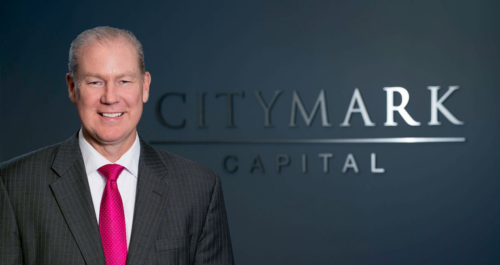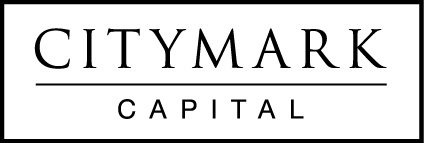Citymark Capital latest growth strategy focused on multifamily housing debt
This article was initially published by Jeremy Nobile, banking, finance, and law reporter, in Crain’s Cleveland Business on June 11, 2025:
Citymark Capital latest growth strategy focused on multifamily housing debt
 Daniel Walsh is applying his experience from the Great Financial Crisis as he positions Citymark Capital for growth and shapes it into the partner he wishes he had back in 2009.
Daniel Walsh is applying his experience from the Great Financial Crisis as he positions Citymark Capital for growth and shapes it into the partner he wishes he had back in 2009.
At that time, Walsh was entrenched in the real estate capital markets division at KeyBank. His experience there could be thought of as a precursor to Citymark, a private equity real estate investment firm specializing in multifamily housing that Walsh founded in 2015 and leads as CEO.
As real estate portfolios suffered amid the Great Recession, banks sought opportunities to offload those increasingly dicey investments to other buyers to reduce their exposure to the asset class.
During this time at Key, one of Walsh’s duties was derisking the book.
“We had $22 billion of debt on a $90 billion asset footing,” Walsh said. “We put a team together to value every single loan and sold off several billions of dollars of loans off their balance sheet.”
While today’s landscape is not the same as the late aughts, current market dynamics — including still-high interest rates and a generally tumultuous economy — are pressing lenders to rethink the viability of multifamily housing loans in their commercial real estate portfolios as concerns with borrowers’ abilities to pay grow.
According to data tracked by the Trepp CMBS Delinquency Rate report, delinquencies have been trending up since last year.
Delinquent balances totaled $42.6 billion in May, according to Trepp, while delinquency rates in the multifamily segment stood at 6.1% compared to 1.7% in May 2024.
As these loans are downgraded amid mounting delinquencies and growing concerns for defaults, banks are required to set aside more reserves to cover potential losses, which is one driving factor that can make those loans unprofitable for the institutions holding them.
This presents a growth opportunity for Citymark, which has positioned itself as a buyer of distressed multifamily housing debt that lenders may be looking to quietly unload.
Supporting Citymark’s efforts here is a partnership with PGIM Real Estate, the global asset manager of Prudential Financial Inc.
Through their joint venture, PGIM is making available a $500 million capital pool designed to help Citymark capitalize on what’s been described as a refinancing window for an estimated $650 billion in multifamily debt slated to mature between 2024 and 2026.
“Over the next 18 months, we expect to see a large volume of multifamily loans coming to the market,” said Soultana Reigle, Head of U.S. Equity for PGIM Real Estate’s Value-Add Strategies, in October. “We believe that our deep experience and capabilities in the residential sector will allow us to take a partnership-like approach to identifying creative capital solutions for banks that also provide attractive opportunities for our investors.”
Since its founding a decade ago, one of Citymark’s core strategies has been a value-add approach whereby the firm snaps up multifamily housing units in high-growth markets — such as apartment complexes — invests in improvements and updates, raises the rent and then sells the property to the next buyer.
While that approach is still very much in play, the strategy backed by PGIM helps Citymark get involved with an investment via debt channels instead of equity.
“It allows us to access investments in this capital environment,” said Beth Zayicek, Citymark’s newly installed chief operating officer, who previously worked with Walsh at KeyBank. “And I think one thing that is showing through with both Dan’s background and the background he has added with me and some of the other recent hires is that we have experience across banking and multifamily structured deals. So we have a team in place that allows us to take advantage of these market opportunities.”
“It is still anchored in multifamily as the underlying investment,” Zayicek said. “It is just how we’re accessing it is a little different now. And it’s a great opportunity to generate returns for our clients at this point in the cycle.”
“If we are in an extended downturn, if rates stay high and pressure continues, the need for our product will be even greater because there will be more loans that need to be restructured,” Walsh said. “And if the market snaps back quickly and there is a need for equity in our more traditional format, we can do that as well. We are in a position where we can respond to either environment.”
It also helps that Citymark sold off a large chunk of assets coming into 2022, before the market began to shift.
“We can’t predict the future. But we do know the real estate market cycle,” Walsh said. “And I would say in 2022 it felt very much like 2007.”
Walsh said this was in the best interest of investors because goals had been met. But it was also a fortuitous move that preceded rising interest rates.
“Private equity firms like to grow (assets under management) because it creates fee income. We actually shrank when selling to reposition for this new market cycle in terms of our asset footings,” Walsh said. “Then we reloaded for fund three and are growing again.”
The last couple of years have been “brutal” for new investments, Walsh said.
“But because of our pivot to work with helping banks restructure multifamily debt that drives the same level of returns with a lot less risk,” he said, “we’ve actually been pretty active making new investments over the last 18 months or so in a frozen market.”
Citymark has participated in at least 28 deals across the U.S., totaling about $1.4 billion in value and representing about 8,000 apartment units.
The firm is currently investing out of Citymark Capital U.S. Apartment Fund III L.P., its third fund, which features a total offering amount of $400 million, according to public filings.
The firm has surpassed $450 million in capital raised to date and reports $555.43 million in total AUM as of December 2024.
Citymark’s team includes a dozen employees today and has grown in recent months with several new hires, including Zayicek. Adding more talent has become necessary as the firm grows and evolves with market conditions.
As the firm looks to grow in part through this strategy of buying up multifamily debt, should it be concerned about the same delinquencies worrying lenders?
“While we’re buying the debt,” Walsh said, “we’re still equity investors looking through and saying what is the asset worth today? The debt we’re buying creates a spread that by restructuring the loan will drive the same target returns for our investors as if it were an equity investment. And if for some reason the debt doesn’t perform, we’re OK because we would then own the asset and still have that value-add spread that we’re giving to our investors.”
For relevant disclosures, please refer to: https://citymarkcapital.com/media-disclosures/

One Cleveland Center
1375 East 9th Street Suite 2880
Cleveland, Ohio 44114
Phone: 216-453-8080
E-mail: info@citymarkcapital.com
